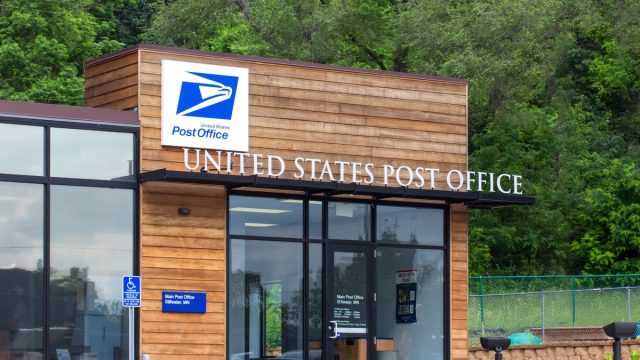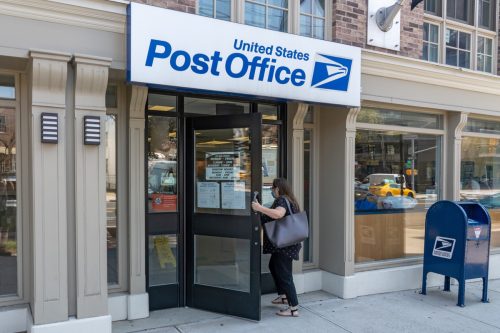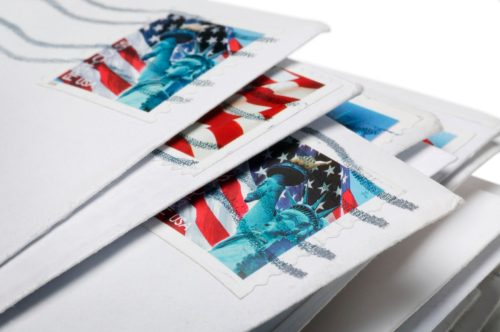USPS Says If You’re Paying More Than $1.10 for This, You’re Being Scammed

The U.S. Postal Service (USPS) is responsible for delivering mail to every person in the country—whether they live in the bustling heart of New York City or remote parts of Alaska. But the fact that hundreds of millions of people rely on the same service is something scammers are all-too-eager to capitalize on. Now, the USPS is altering customers about an increasingly common tactic being used by con artists. Read on to find out what the agency says you should never be paying more than $1.10 for.
READ THIS NEXT: If You Get This in the Mail, Return It to the USPS Immediately, Officials Say.
Scammers frequently target USPS customers.

Scammers often gain the trust of victims by masquerading as a well-known company or agency—like the USPS, which is no stranger to finding its name at the center of schemes. According to the Postal Service, common scams aimed at its customers include unsolicited texts claiming there has been a problem with your shipping address and fake emails about delivery attempts from the agency.
But those are just a small snapshot of a much larger problem. “Every year, millions of Americans nationwide are targeted by scams connected to the U.S. Postal Service,” the agency’s Postal Inspection Service (USPIS) branch explains on its website.
Now, the USPS is warning customers about a rising scheme they should be on the lookout for.
Pay attention to how much you’re being charged for one USPS service.

The USPS charges different fees for its services, and many of us just pay them without thinking twice about the costs. But when it comes to changing your mailing address with the agency, it’s extra important to pay attention to the exact price you’re being charged. According to the USPIS, customers are only required to pay a $1.10 fee when applying online for a change of address (COA) request. The purpose of the fee is to “verify the customer’s identity” when the request is not being made in person, the USPS explains.
If you’re being asked to pay anything more than that, you’re being scammed. “Postal Inspectors are finding that some postal customers paid more for a change of address on other websites,” the USPIS explained on its website. “These sites can charge up to $40 to change the address and, in some cases, the changes never get made.”
RELATED: For more up-to-date information, sign up for our daily newsletter.
The agency recently warned that COA scams are on the rise.

The Postal Service says it processes around 98,000 address changes daily. And out of the nearly 36 million change of address requests processed by the USPS in 2021, more than 20 million were submitted online. Unfortunately, the increased preference for online services may be aiding to an increase in COA scams. Customers can easily get tricked into submitting a request somewhere else and not on the Postal Service’s Moversguide website—which has the official application for online COA requests.
According to the Postal Service, scams involving address changes have risen significantly recently. The newest data from the agency’s Office of Inspector General (OIG) indicates that there has been a 167 percent increase in the number of fraudulent COA requests granted by the USPS. Online cases of COA fraud and attempted identity theft increased from just 8,857 in 2020 to 23,606 in 2021, according to the OIG’s report.
Many customers have complained about falling victim to this scheme.

The Better Business Bureau’s (BBB) has received a number of customer complaints on its website about postal address change scams since April 2021.
“I used a postal change service and it charges me $99.95 without my knowledge or consent of the charge or a confirmation email of the charge,” one complaint made on Oct. 24 reads. “I go to contact the service and there is no contact and I click on other links on the site and server is not found. This is a scam.”
If you realize you have gone through a third party website to submit a COA request, the USPS advises you to first contact that company. “If you are charged more than $1.10, please refer back to the website where you entered your COA or dispute the charge with your credit card company,” the agency says.